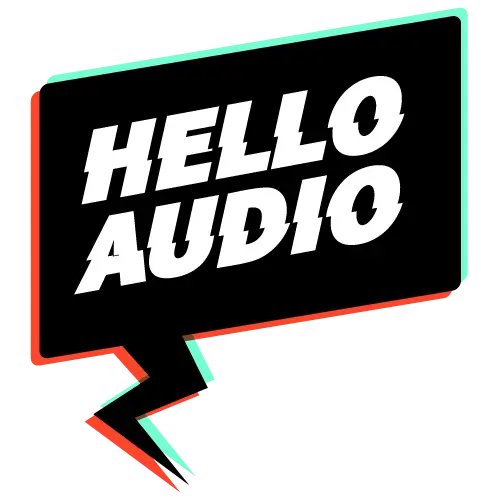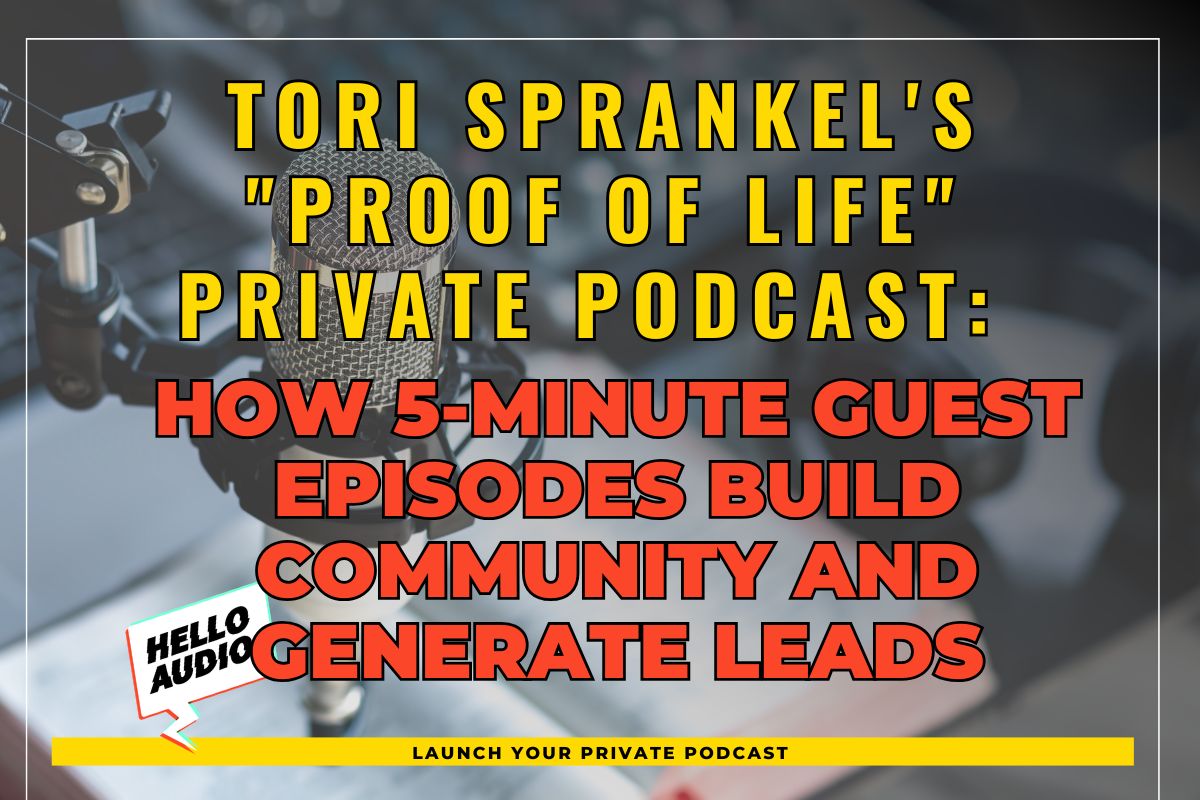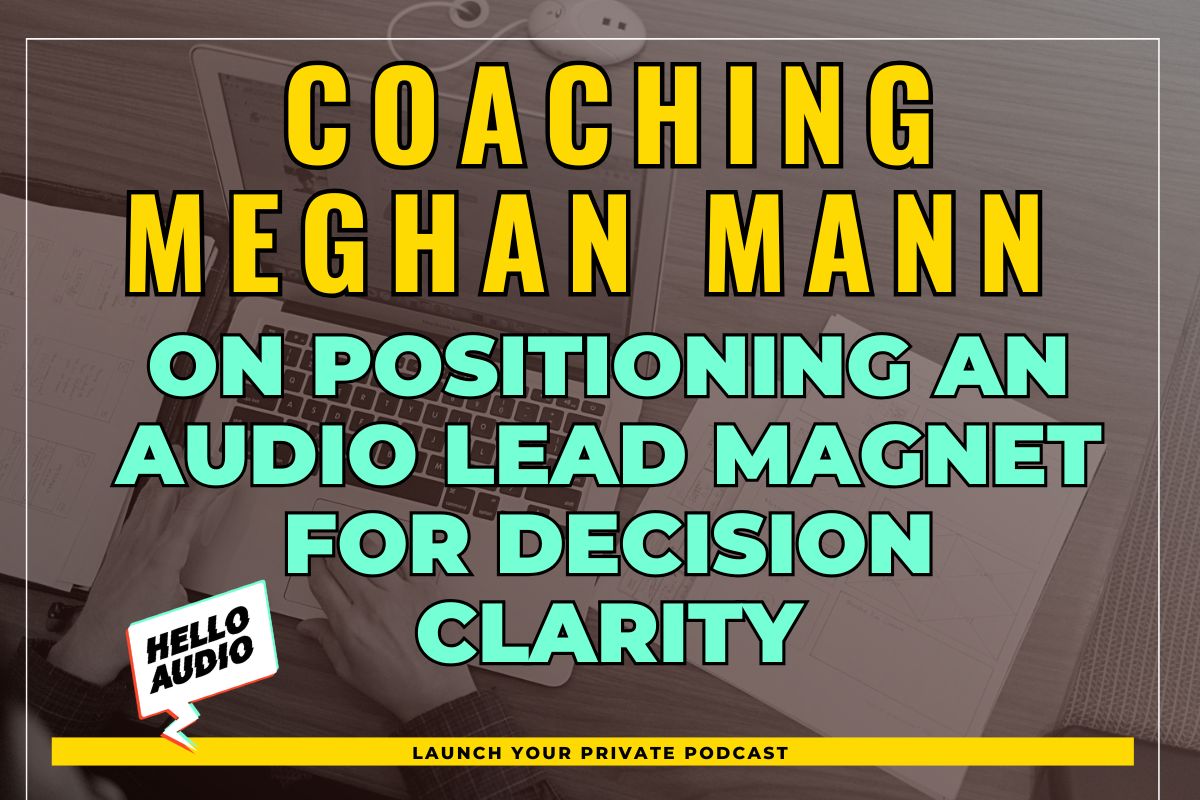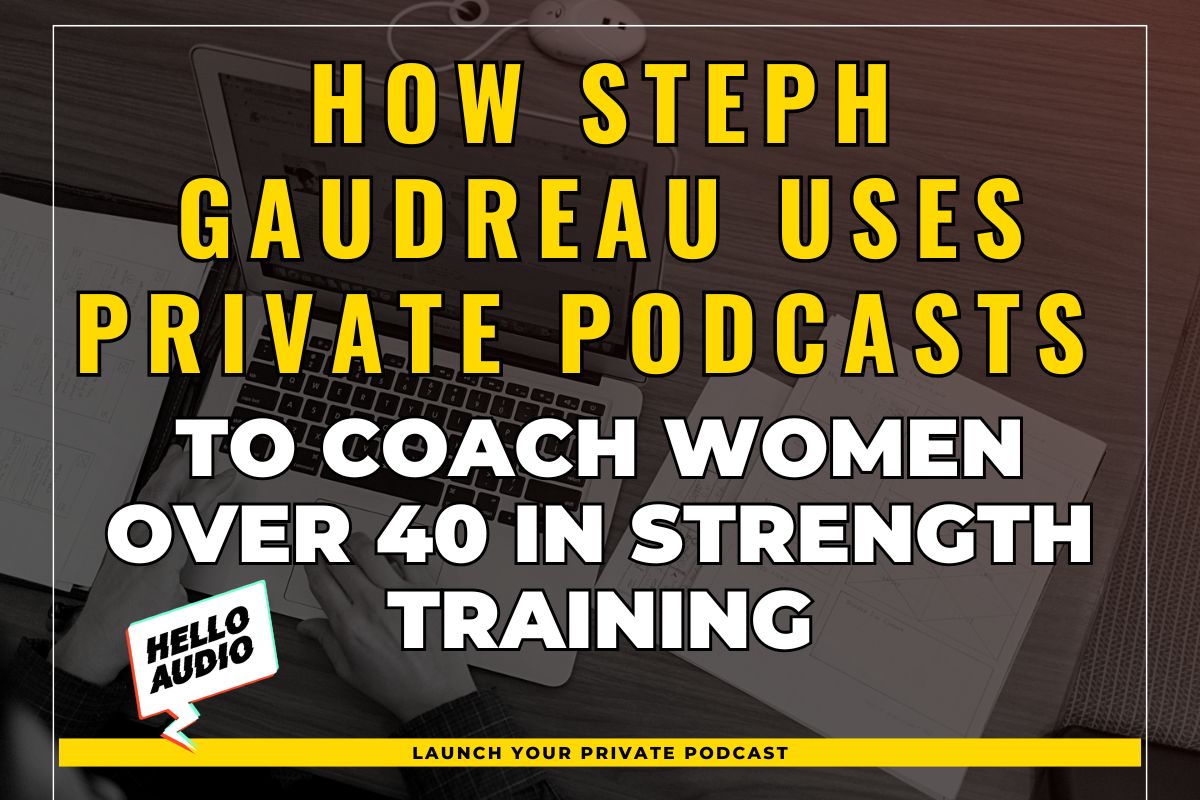Many creators search for new ways to monetize their content in the age of the Internet. They sell products, create art, and even build exclusive communities.
One of the most popular ways they do these is through Patreon, a huge creator membership platform.
Creators choose Patreon because it effectively helps them expand their reach. Despite its popularity, some have still searched for alternatives—and you’re likely one of them, too.
In this guide, we deeply researched the best alternatives for creators, writers, and artists. Learn more about them below.
TL;DR – 22 Best Patreon Alternatives
There are plenty of platforms that offer services like Patreon. We ranked the top Patreon alternatives based on their features and pricing models.
- Hello Audio
- Thinkific
- YouTube
- Onlyfans
- Kajabi
- Kickstarter
- Podia
- Subscribestar
- Teachable
- Indiegogo
- Mighty Networks
- Discord
- Buy Me a Coffee
- Substack
- Ghost
- Ko-fi
- Gumroad
- Sellfy
- Bandcamp
- Memberful
- SupaPass
- EVEN
As the list shows, Hello Audio is the top Patreon alternative for creators.
Looking to build a strong following and leave a lasting impact? Sign up with Hello Audio to build a community of private podcast listeners and deliver exclusive content to your audience.
What is Patreon?

Founded in 2013, Patreon is a membership and monetization platform that allows creators to turn their creative pursuits into businesses. It offers a dedicated space for you to interact with community members and provide exclusive content to your followers (patrons).
Creators can use Patreon for free and purchase membership plans once they expand their business.
How Does Patreon Work? What is Patreon Used For?
Patreon is a platform for creators to receive ongoing financial support from their patrons. The model is quite simple: Patrons make their payments regularly to gain access to a creator’s exclusive content.
Before you receive payments, Patreon takes a portion of the fees, depending on the pricing plan.
How Much Does Patreon Take?
Patreon takes between 5-12% of fees, depending on the membership tier. Those who created their Patreon account before 2019 are charged 5% of their income, with additional payment processing fees and other taxes.
Currently, the Pro and Premium plans are the most accessible, with the former charging 8% and the latter charging 12%.
Why Don’t People Like Patreon?
Even if Patreon is a popular platform, there are still many reasons why some creators prefer other platforms. While the reasons may vary depending on the creator, here are some popular reasons why people make the switch:
- Fees: Plenty of Patreon alternatives take a smaller cut of the fees, which is beneficial for many creators.
- Limited Features: Some creators find Patreon’s features lackluster compared to what its counterparts offer.
- Difficulty in Increasing Visibility: If you’re looking to expand your reach, Patreon lacks built-in discovery tools to help you increase visibility without having to pay up.
What is the Best Patreon Alternative?
The honest answer? It depends on what you’re building.
Some creators want course sales. Others want crowdfunding, newsletters, or digital product sales. The “best” alternative comes down to how you plan to deliver value.
If you’re selling courses, a dedicated course platform makes more sense. If you’re running some crowdfunding campaigns, a project-based platform is better suited. Writers may prefer newsletter-focused tools.
But if you want recurring membership revenue built around private audio content, Hello Audio stands out. It delivers exclusive episodes straight to your audience’s podcast app, making it easier for members to listen without constantly logging in.
At the end of the day, the right choice depends on how you want your audience to access and experience your content.

Key Features to Consider in a Patreon Alternative
If you’re facing similar issues as mentioned above and are looking for alternatives to Patreon, ensure you switch to a better-fitting tool for your creative business.
Here are some features that you should consider:
Pricing Structure
Across all membership platforms, there are typically two pricing models: a flat monthly fee and a percentage cut from earnings. Each has its pros and cons.
Look for a percentage-based model if you’re just starting out and don’t have many resources to leverage. But as you grow, those cuts can eat into your profits.
You need to prioritize platforms with transparent pricing and flexible fee structures so you always know what you’re paying and why.
Marketing & Discovery Tools
Discoverability is one of Patreon’s most talked-about weaknesses. With an alternative, you might be able to grow and serve a larger audience rather than serving just the existing one.
Consider platforms with built-in marketing tools, such as customizable landing pages, email campaigns, reminder notifications, and social media integrations, so you can promote your content effectively and attract new members.
Community Engagement
With Patreon, you may struggle to build an online community. That’s why you should favor platforms that offer comprehensive tools, such as discussion forums, direct messaging, live streams, and community spaces.
Such audience engagement tools allow members to interact with each other and not just with you. With a strong sense of community, you’ll not only increase retention but also enhance the overall member experience.
Analytics & Insights
To grow your community and make effective decisions, you need accurate data.
Look for platforms that provide detailed analytics, like supporter demographics, engagement metrics, and content performance, to help you make smarter decisions.
Brand Customization
With Patreon, you can do minimal branding, like choosing a profile picture and banner. You may want more control over brand aesthetics and identity.
Platforms that let you customize your colors, fonts, layout, and even use your domain will help your membership site feel like a natural extension of your brand.
22 Alternatives to Patreon
Fortunately, there are plenty of alternatives to Patreon. We’ve dived deep into each platform and compared it with Patreon.
Let’s dive in:
Patreon Alternatives for Creators
Several Patreon alternatives will meet your needs as a creator. Your choice will depend on the type of content you create.
Here are some alternatives you can try out:
1. Hello Audio
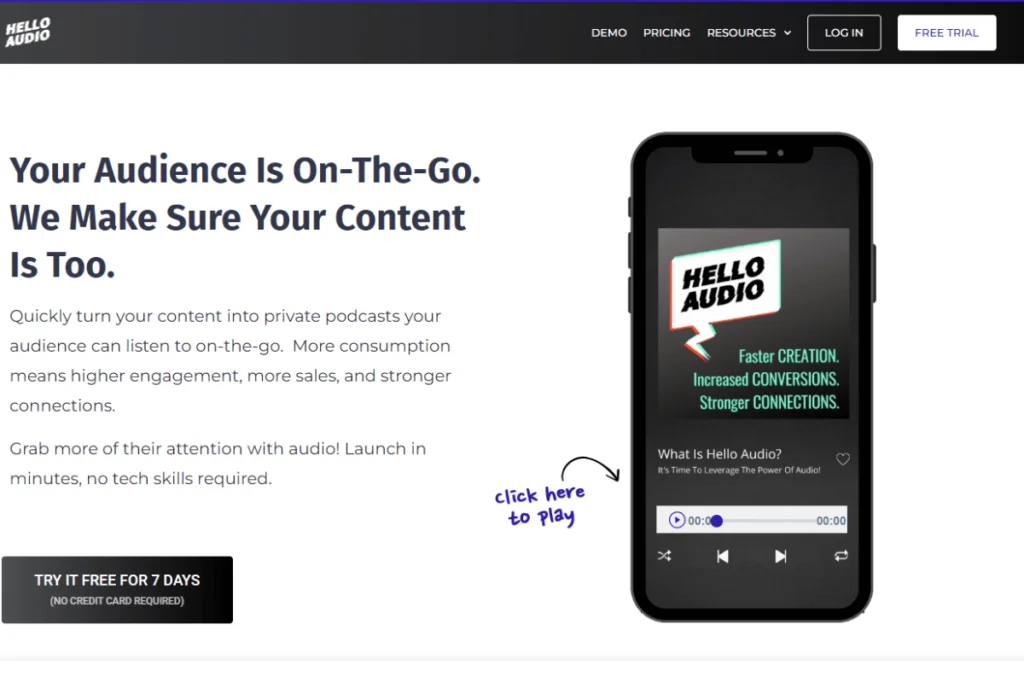
At the top of our list is Hello Audio, a revolutionary platform for content creators. Whether you’re an educator wanting to convert your course videos into podcasts or an influencer looking to repurpose your video content into private podcasts, it has all the features you need.
That’s why Hello Audio truly makes you a content wizard. Content creators, educators, coaches, and businesses have all reaped the benefits of using Hello Audio. The best part is that you can do all these quickly without any deep technical experience.
Another striking advantage of Hello Audio over Patreon is its fees. Hello Audio fees begin at 0% and go up to 5% depending on the pricing plan you choose. These are significantly lower than Patreon’s fees, which start at 8% for their Pro plan.
Are you ready to turn your unique content into private podcasts with Hello Audio? Now’s the time to sign up and get started!
2. Thinkific
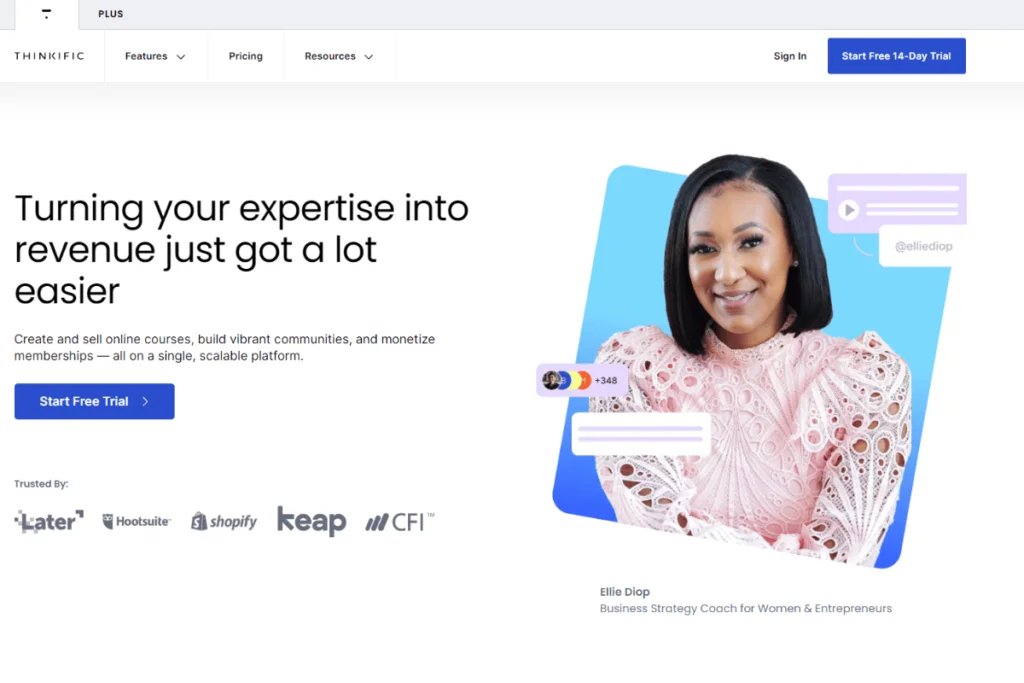
Creators looking to sell online courses might want to consider using Thinkific. With its simple user interface, you won’t need deep technical experience to start your online course. Unlike Patreon, Thinkific is not a membership-based platform.
By using Thinkific, you can start a webinar, host a coaching program, or even conduct quizzes. The best part is that you can get started with this for free.
3. Patreon vs. YouTube
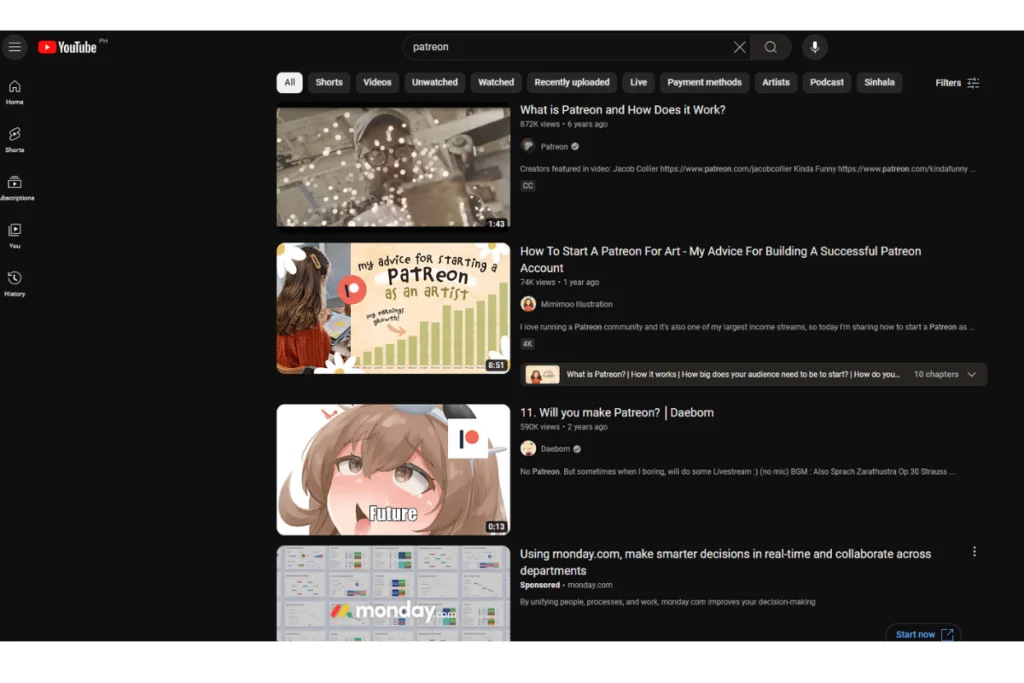
Patreon and YouTube are platforms built for creators. While Patreon hosts more than 250,000 creators, the latter is undoubtedly the bigger platform, with more than 2.5 billion monthly users. Let’s take a look at a side-by-side comparison of these two websites:
4. Patreon vs. OnlyFans
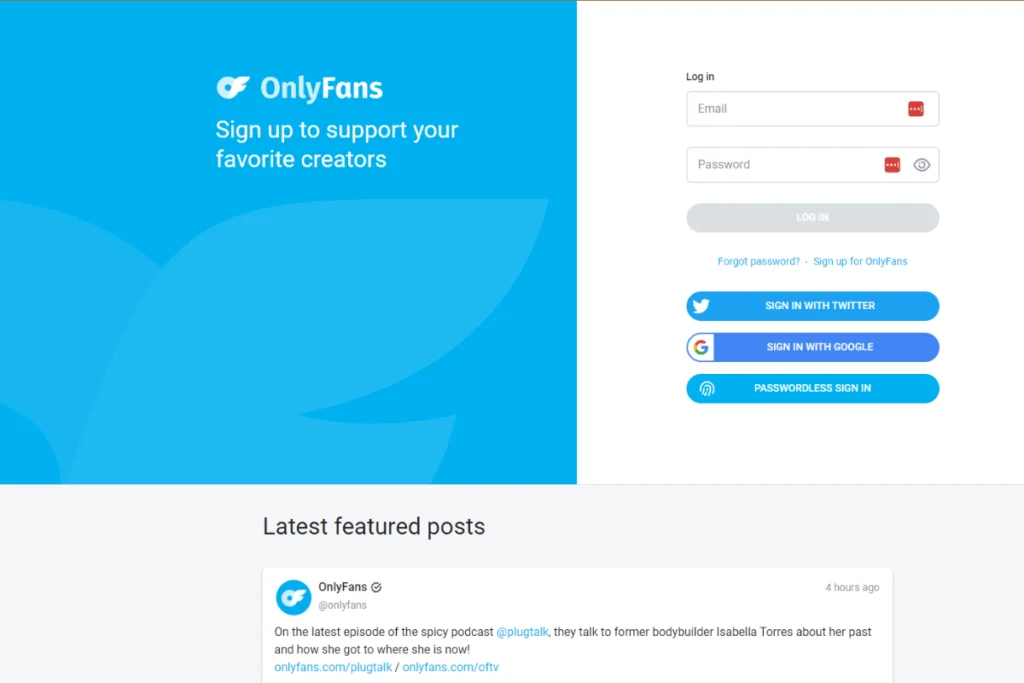
While both Patreon and OnlyFans are effective money-generating platforms, both vary in terms of the content they provide.
Patreon focuses more on general content – anything that falls under the sun. You can launch podcasts to connect with your audience or release new music to solidify your fan base. Meanwhile, OnlyFans is focused on mature content. Fitness enthusiasts and musicians also release content on the platform; however, they do not comprise the bulk of OnlyFans content creators.
In addition to the type of content found on each platform, they also differ in fees. Patreon charges fees that range from 5% to 12%, depending on the tier. In contrast, OnlyFans charges a flat fee of 20% for users. However, it has the advantage of more direct user engagement.
What’s more, OnlyFans allows you to bundle your content and provide special offers that can entice viewers to purchase your content.
5. Patreon vs. Kajabi
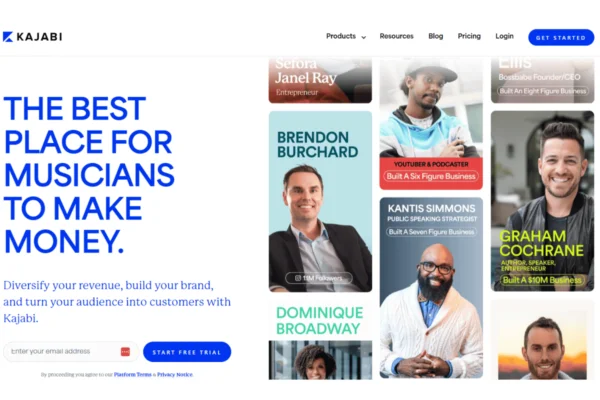
Like Patreon, Kajabi is a membership website that allows you to share your knowledge with subscribers – an excellent choice for content creators. However, there is a stark difference between their fundamentals. Kajabi (like the other Teachable alternatives) is more suited for creators, while Patreon is more suited for visitors.
Kajabi is an all-in-one platform that doesn’t require you to integrate tools; it’s as complete as you want it to be. As a creator, you save both time and money compared to using Patreon.
Sure, you get the flexibility of adding plug-ins to your Patreon membership website, but if you don’t know what you’re doing, you can easily rack up costs with Patreon.
6. Kickstarter vs. Patreon
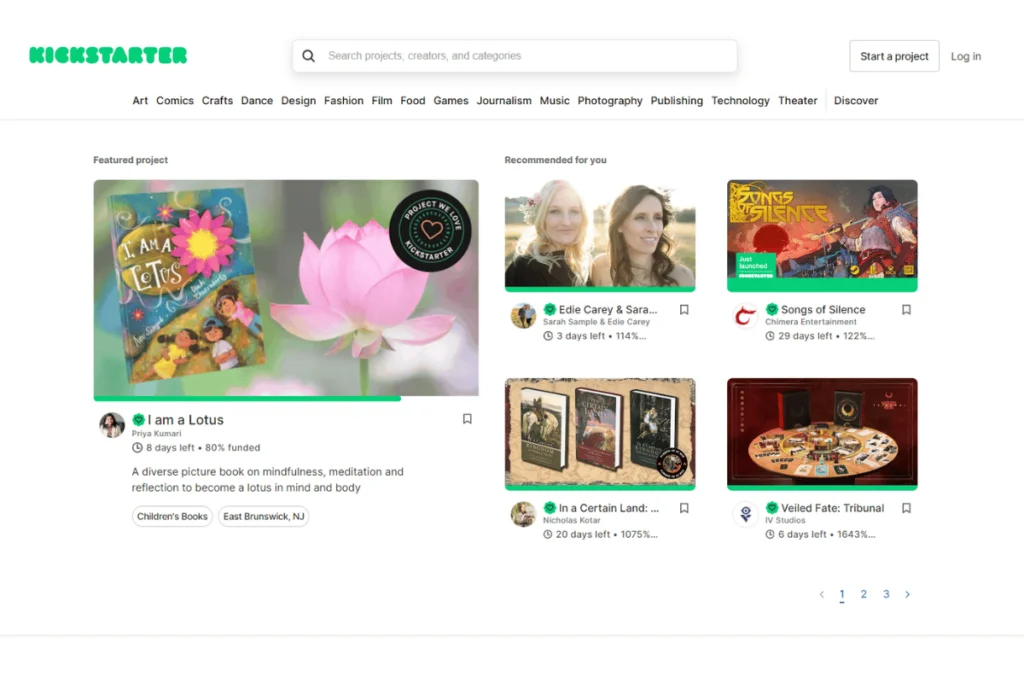
Another huge name in the crowdfunding space is Kickstarter, which boasts a 31.99% market share. It’s one of the best platforms for creatives, as Kickstarter’s mission is to help bring creative projects to life.
Kickstarter helps creators present their project ideas for funding. Because the website is so popular, you don’t necessarily have to spend too much on marketing. Many tech blogs, magazines, and other strangers can fund your campaign if they find it interesting.
Unlike Patreon, Kickstarter has built-in promotional tools that can help boost your campaign’s visibility.
Also, Kickstarter is a one-time pledge, an excellent choice for project-based funding. However, creators looking for steady income will benefit more from using Patreon.
7. Podia vs. Patreon
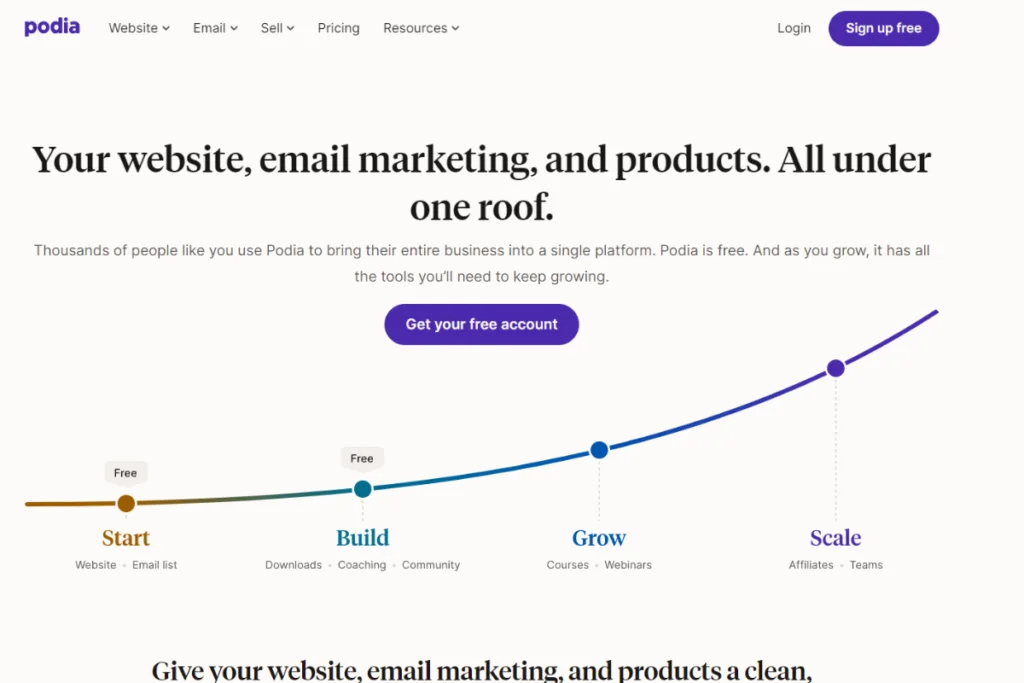
As a content creator, you might want to build your own website or sell online courses. Between Podia and Patreon, only one platform is capable of doing that – it’s the former. Now, let’s compare these two platforms side by side:
8. Subscribestar vs. Patreon
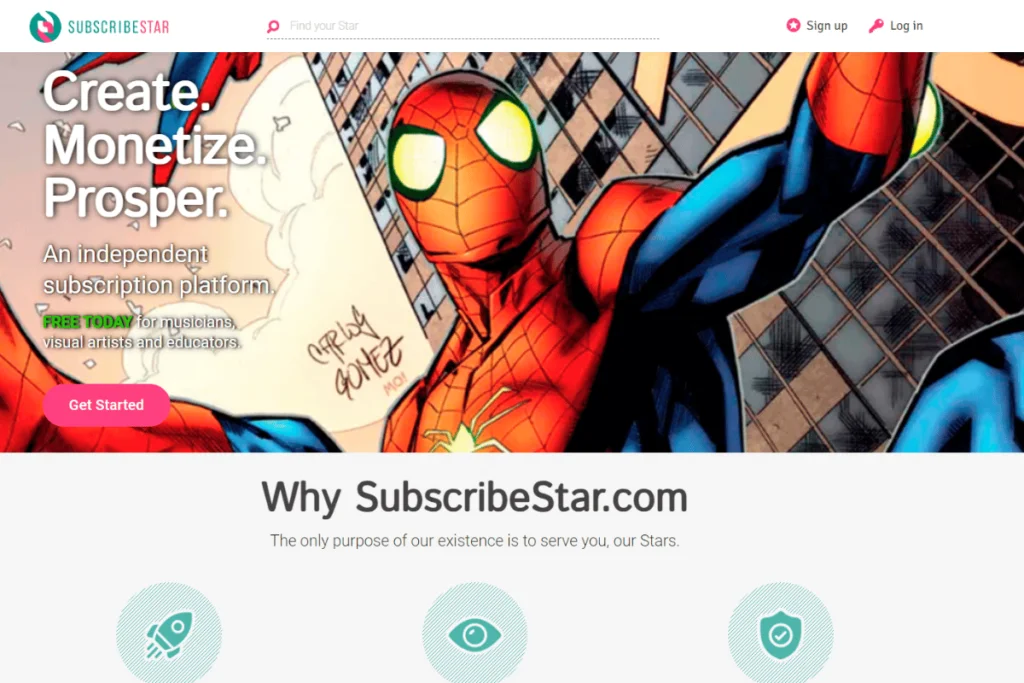
Subscribestar and Patreon are similar in that they both allow you to monetize your content through subscription-based memberships. So, when do you choose one over the other?
For creators who usually create controversial content that may not be permitted on Patreon, then Subscribestar will be the way to go. Creating an account is free, and your monthly earnings will depend on the number of subscribers and your subscription fee.
Their website has a calculator that can give you a better idea of how much you can expect to earn after fees.
9. Teachable vs. Patreon
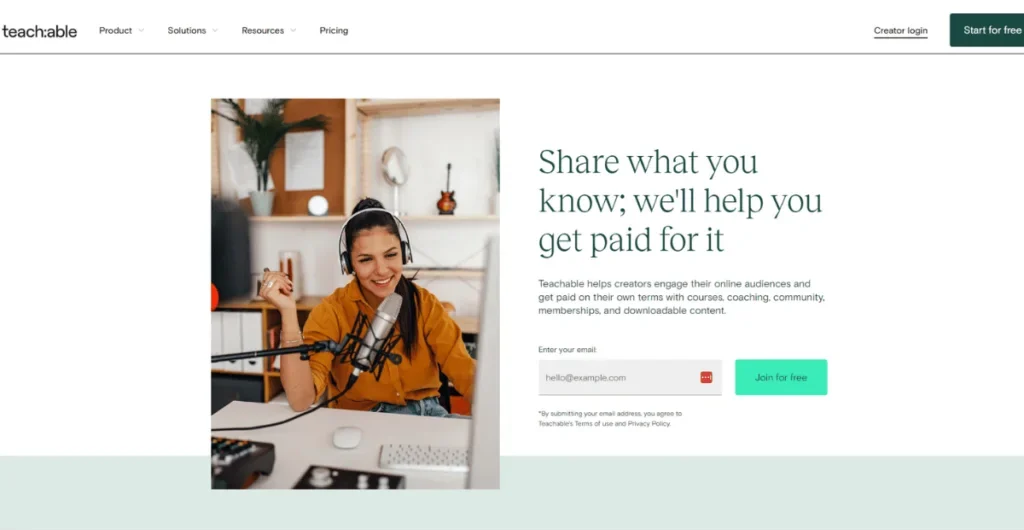
From the name itself, you can already tell that Teachable aims to help you teach your audience – and that’s true. It’s a course-only platform, and another reliable option to monetize online courses. You can create your course and provide different modes of evaluation.
The platform comes with built-in marketing tools that can help you create landing pages and more. Plus, it has AI tools that can generate course outlines and overviews in seconds.
This is completely different from what Patreon has to offer, as Patreon is more focused on community engagement than course creation.
10. Indiegogo vs. Patreon
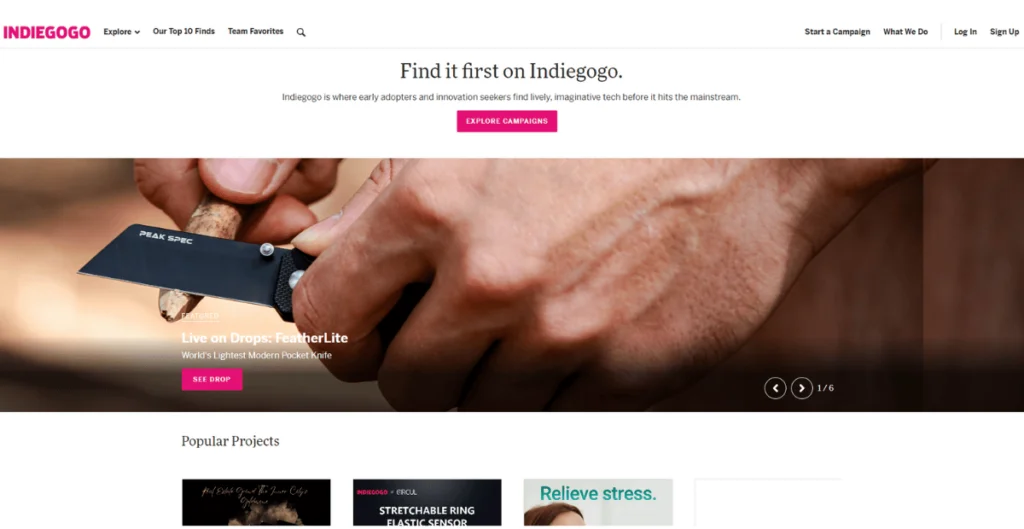
A crowdfunding platform similar to Kickstarter that you can also consider is Indiegogo. Although its traffic is lower than Patreon’s, Indiegogo has some features worth keeping an eye on.
For example, you don’t necessarily have to reach your funding goals to collect cash. Additionally, you get 120 days to keep your campaign live for maximum visibility.
Just like Kickstarter, Indiegogo operates on a rewards-based system, which differs from Patreon’s subscription-based model. It’s a good choice for creators who launched an initial campaign and want a continuous crowdfunding campaign.
11. Mighty Networks vs. Patreon
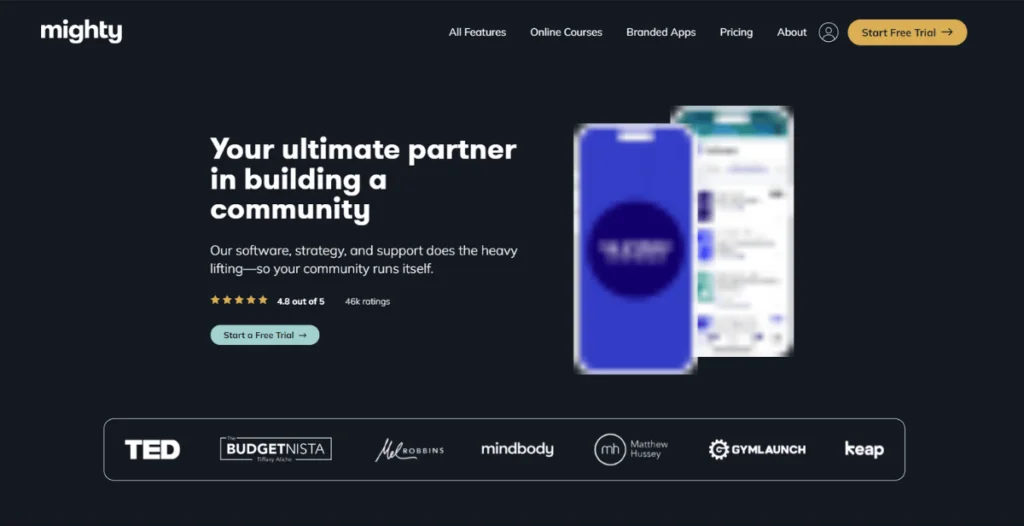
Mighty Networks is a community platform that turns subscribers into members. Building your community through Mighty Networks is a whole lot easier than growing it through Patreon. Members also have the chance to interact with each other, instilling a stronger sense of community among them.
It has everything you need—memberships, live events, chats, forums, and more! But keep in mind that instead of taking a fixed percentage of your earnings, Mighty Networks charges a flat fee starting at $33 per month.
12. Patreon vs. Discord

Lastly, we have Discord – a communication platform that can help you build your community from the ground up. You have text, video, and audio channels to get you started with growing your community.
Still, it’s not designed for creators to monetize their content, as it has no monetization features. As a creator, you can use Discord if you only want to build a tight-knit community around your work rather than directly earn from the content you create for your followers.
Patreon Alternatives for Writers
Writers looking for the best Patreon alternatives can consider these options:
13. Buy Me a Coffee vs. Patreon
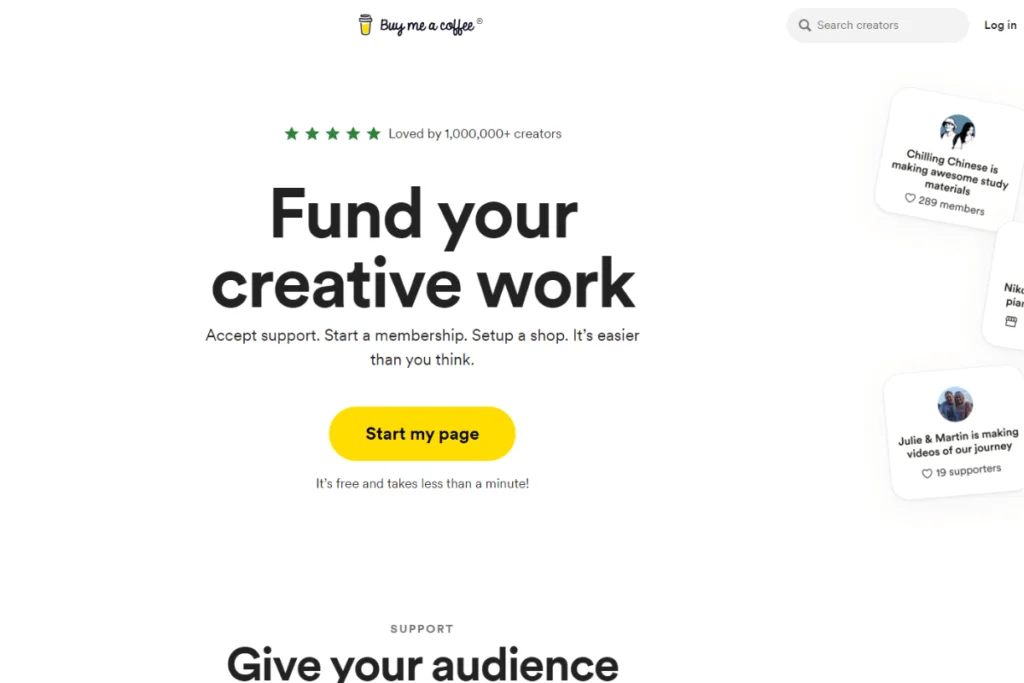
When it comes to releasing blogs or exclusive written content, Buy Me a Coffee is a superior crowdfunding platform. The platform can also host private podcasts, showcase images, and share other forms of media that your audiences will love.
Compared to Patreon, Buy Me a Coffee is a lot easier to use when interacting with supporters. Patreon’s advantage lies in its additional services, such as allowing creators to add live streaming, polls, and other forms of media.
For those concerned about the release of payments, Buy Me a Coffee has the edge since it provides instant payments, unlike Patreon, which releases payments only after 30 days.
14. Substack vs. Patreon
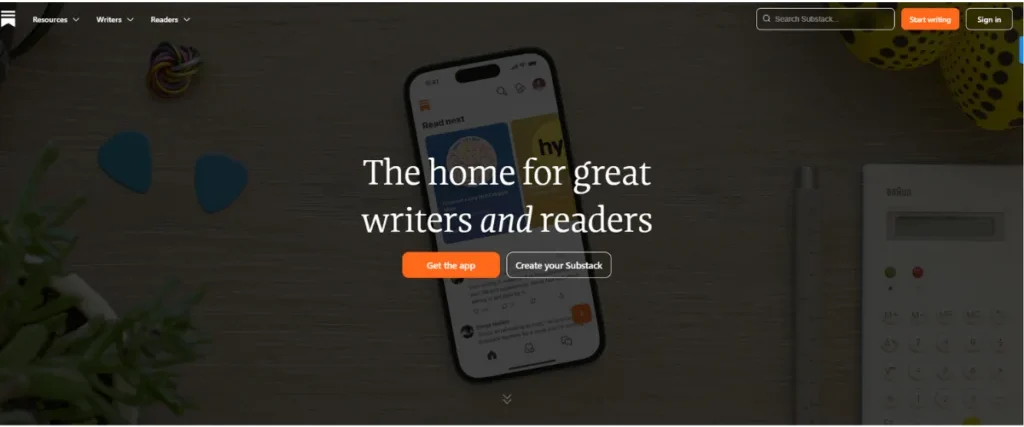
Substack is an easy choice for writers, thanks to its ability to send weekly newsletters to your followers, whether free or paid.
Note: Substack takes about 10% of your fees, so if a reader subscribes to your newsletter for $10 per month, Substack receives $1 for every subscriber.
Compared to Patreon, which offers more features for different types of creatives, Substack is the better option if you focus on providing value with your newsletters.
However, you may want to look for Substack alternatives if you find its drawbacks to be limiting.
15. Ghost vs. Patreon
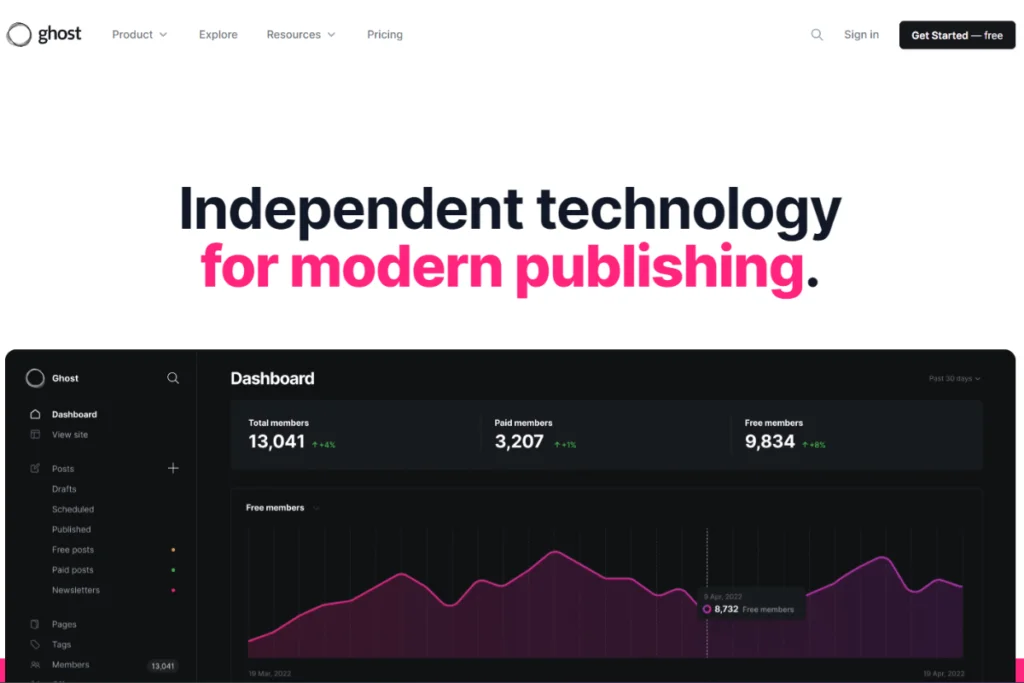
Similar to Substack, Ghost is a valuable platform for writers looking to connect with their audience through weekly newsletters. Even with its limited features, Ghost can still be helpful as an editor.
Its flexible platform allows you to customize your publications to suit your needs. Ghost’s winning feature is that it is open source. Even if Ghost shuts down, you still own your content, subscriber list, and the code.
Also, if you want your content to be available to the public, paying members, or both, you can use Ghost to publish content beyond the Ghost network.
Patreon Alternative for Artists
Lastly, artists might want to take a look at these platforms to monetize their works:
16. Ko-fi vs. Patreon
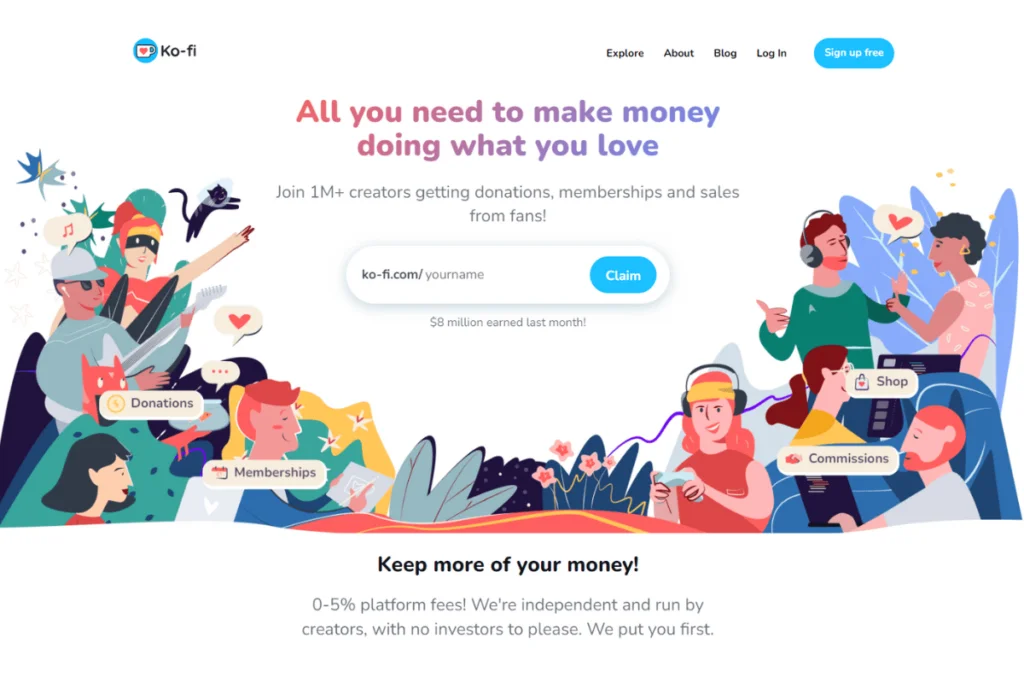
Ko-fi and Patreon are great choices for creators to connect with their followers. Both tools allow creators to offer subscription-based memberships to their users, all with different tiers. Followers can select a tier based on their desired level of support and exclusive benefits they wish to receive from you.
Plus, these platforms enable you to update your followers and fan bases with photos and videos – they can even be scheduled to go out on specific days and times!
But that’s where their similarities end. Ko-fi allows your followers to provide one-time donations. The cool part is that Ko-fi does this so casually. Followers can donate by “buying you a coffee,” so it doesn’t sound like your typical donation.
On top of that, you can sell your products in your own shop, whether they are physical or digital items, without any listing fees.
17. Gumroad vs. Patreon
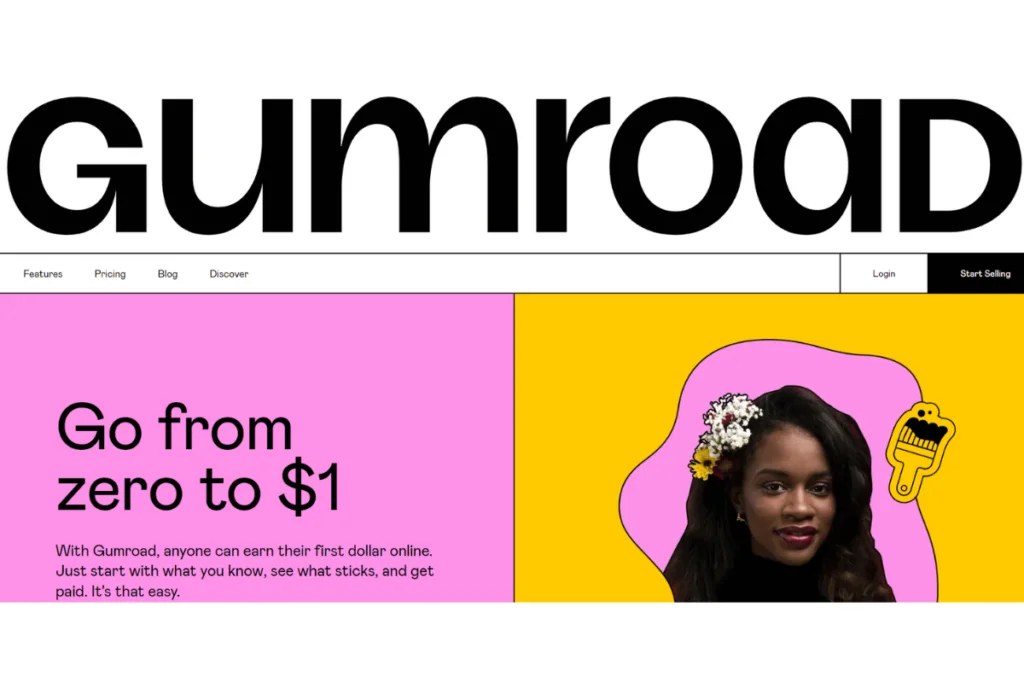
If you’re looking for an online marketplace where you can sell all sorts of products, then it’s worth looking into Gumroad. These products can be anything physical or digital, so you have plenty of options. Just like Patreon, it does take a huge cut of fees, about 10%.
If you have your own products and services, then Gumroad is a no-brainer. But if you have a large following and would like to offer exclusive content, then that’s when you choose Patreon or other Gumroad alternatives.
18. Sellfy vs. Patreon
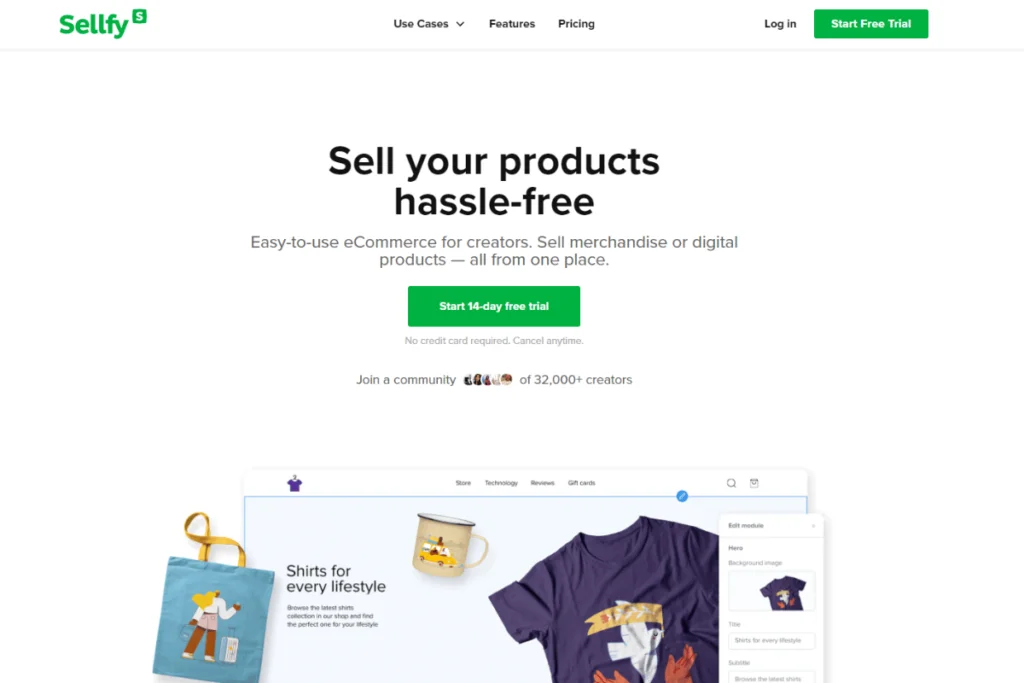
Another marketplace that we have on our list is Sellfy. While Patreon is the more popular option, don’t count out this Patreon alternative from your options.
Although you can sell both physical and digital products, Sellfy is better suited for digital products. Artists can sell different works, including digital art and music.
Compared to Patreon, it’s highly customizable and easy to set up. No wonder many artists have switched to monetizing their products on Sellfy!
Patreon Alternatives for Bands
Bands have slightly different needs than solo creators. So if you’re looking for an alternative specific to bands, these are some options:
19. Bandcamp vs. Patreon
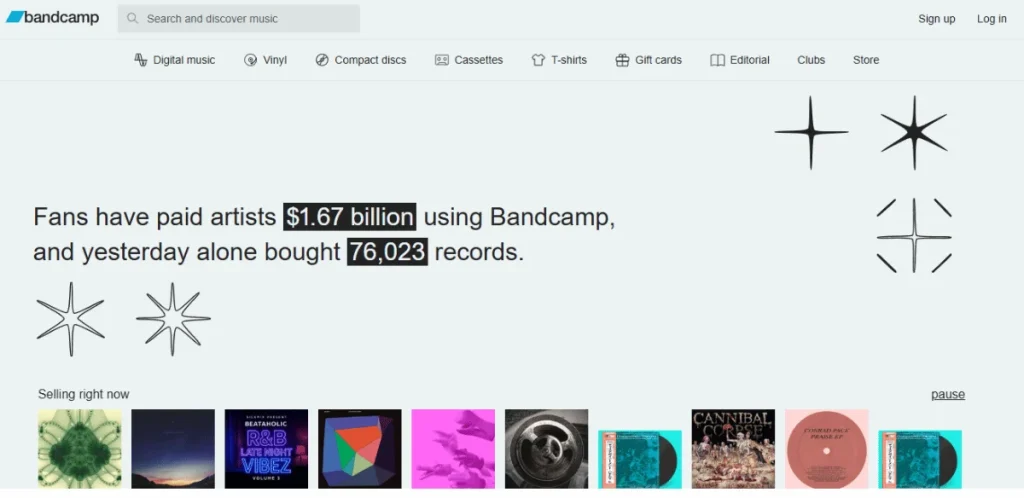
Bandcamp is a popular platform for independent musicians who want to sell their music directly to fans. Artists can offer digital downloads, vinyl records, CDs, and merchandise all in one place.
Unlike Patreon, which focuses on memberships, Bandcamp is centered around music sales. However, it also allows artists to offer subscription-style fan memberships for exclusive tracks and special releases.
If your main focus is selling music and merch directly to your fans, Bandcamp makes a lot of sense. It gives you more control over pricing and distribution, which many independent artists appreciate.
20. Memberful vs. Patreon
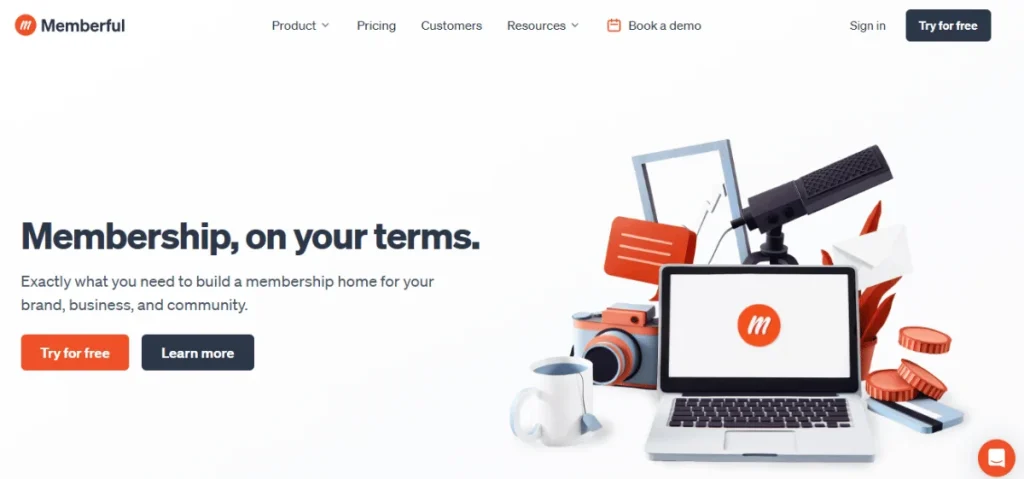
Memberful lets you run a paid fan club right from your own website. So instead of sending supporters somewhere else, everything stays under your brand. Your site, your rules, your experience.
You can offer exclusive tracks, behind-the-scenes clips, early ticket access, or members-only livestreams. It works especially well for bands that already have traffic going to their website and want to keep fans in one place.
Compared to Patreon, Memberful provides more control over branding and customer data.
21. SupaPass vs. Patreon
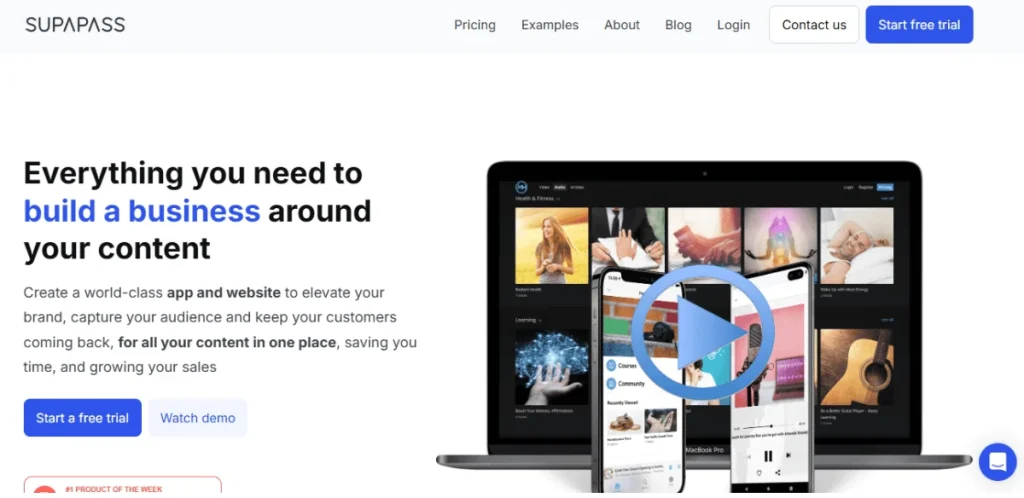
Supapass is designed for those creators who want to build a subscription-based fan community. Bands can create membership tiers, release exclusive content, and provide digital perks to supporters.
It supports recurring payments and gated access, like Patreon, but offers more flexibility in structuring your membership experience.
For musicians looking for an all-in-one membership platform without all the complicated setup, Supapass is worth considering.
22. EVEN vs. Patreon
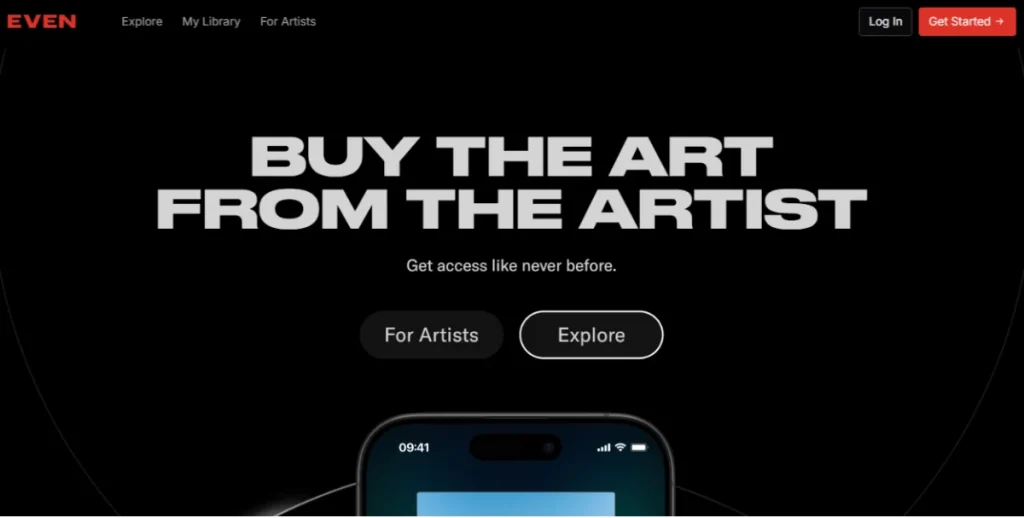
EVEN focuses on helping artists monetize exclusive music drops. Instead of releasing songs directly to streaming platforms, artists can give paying fans early access to new releases.
This model works especially well for bands with an engaged audience that values exclusivity. While Patreon emphasizes ongoing memberships, EVEN is more centered around premium music access.
If your strategy revolves around exclusive releases rather than community features, EVEN can be a suitable alternative.
How to Choose the Best Patreon Alternative for You
With all the options you have at your disposal, it can be difficult to find the platform suited for you.
Here’s how you can narrow down the decision and ensure you choose the right one:
Type of Content
Depending on your content type, some platforms are superior to others. For example, if you’re a writer who wants to monetize weekly newsletters, you can choose options like Substack or Ghost.
Fees
Some websites have fees up to 12%, while some offer flat rates. Before you commit to a platform, be sure to read up on their payout structure.
Features
Consider the features based on your priorities. Discord, for instance, is not exactly a monetization platform, but you can use it to increase engagement with your community through its features, such as channels and voice chats.

Best Practices for Switching from Patreon
Now that the scales have tipped towards switching from Patreon, you need to keep some things in mind.
Here’s how:
Audit Your Patreon Setup
Before you make the switch, take a note of:
- Your current membership tiers and benefits
- Active patron count and monthly earnings
- Most engaged content (based on views, likes, or comments)
This will give you a clear baseline and help you recreate what’s already working or improve it on your new platform.
Communicate Early and Often
Maintain transparency with your members from the beginning. Let them know why you’re leaving Patreon and how the move benefits you and them (better content, improved experience, more features).
Leverage:
- Patreon posts and messages
- Social media updates
- Email newsletters
Give your audience enough time to know what you’re doing, and send reminders as the switch date approaches.
Rebuild Your Membership Tiers Thoughtfully
When you’re switching, you have the opportunity to redesign your tiers.
Maybe you can simplify things or repackage your perks to better reflect what your audience values. Consider adding fresh incentives and adjusting your pricing to better align with the value you’re offering now.

Test Payment Workflows
Before you launch your new platform, testing the payment process from the supporter’s perspective is essential.
Make a test purchase to confirm everything works smoothly, and double-check that international supporters can contribute without issues.
Customize and Brand Your New Space
Use the new platform’s customization options to reflect your identity more clearly than you could on Patreon.
Consistency in colors, tone, and messaging will help supporters feel they’re in the right place.
Offer an Incentive to Migrate
Encourage patrons to follow you to your new platforms with the following:
- Limited-time bonus content
- Exclusive perks for early adopters
- Discounts for the first month
People are more likely to move if they feel like they’re getting something extra out of the switch.
Export Your Audience and Content
Many platforms allow you to export essential data, such as patron email addresses (with their permission), previous posts, and analytics.
Take the time to download and organize what you can so you’re ready to reconnect with your audience and keep your content archive intact.
Pause or Close Your Patreon Account Carefully
Once you’ve migrated:
- Freeze your Patreon tiers to avoid double-billing.
- Leave a final pinned message with a link to your new site.
- Consider keeping it live for a short grace period with basic information.
Avoid shutting out abruptly and give lagging supporters time to catch up.
Track and Adjust Post-Migration
Once you’re live on your new platform:
- Monitor engagement and drop-off rates.
- A/B test content formats or tier structure.
- Collect feedback from your new members.
This ensures you retain your old supporters and set yourself up for sustainable growth.
Mistakes to Avoid When Leaving Patreon
Switching platforms can be a smart move, but only if you handle it carefully.
Here are common mistakes creators make when leaving Patreon:
- Moving Without Validating the New Platform: Before committing to any platform, test it yourself. Explore everything from the backend, review payout timelines, to customization limits, and also understand the fee structure in detail. A platform might look better on paper, but lack features you rely on.
- Ignoring Contract or Billing Timing: If you migrate in the middle of a billing cycle, then you risk double-charging the supporters or cutting off access too early. You need to plan your transition around your billing schedule to avoid confusion and endless refund requests.
- Losing SEO and Public Visibility: Some creators forget that Patreon pages also rank on different search engines. When you plan to leave, you may lose that visibility if you don’t consider SEO. You need organic traffic to ensure that your new platform supports public-facing pages or integrates with your main website.
- Underestimating the Workload of Migration: Content transfer, tier setup, payment testing, and communication all take up a lot of time. So rushing the move increases errors. To avoid this from happening, give yourself enough runway to set everything up properly before announcing it.
- Switching for the Wrong Reason: If your issue is low engagement or unclear value, changing platforms alone won’t fix it. Sometimes the real problem isn’t Patreon. Low engagement often stems from weak audience alignment, while unclear value usually points to messaging or positioning gaps. Make sure you’re solving the right problem before making the leap.
Leaving Patreon should be about upgrading your system. Do it strategically, and the move can accelerate your growth instead of disrupting it.

Frequently Asked Questions (FAQs)
Having second thoughts about switching from Patreon? Here are some commonly asked questions that might assist you further:
How to Cancel a Patreon Membership?
To cancel a Patreon membership, here’s what you need to do:
- Log in to your account and switch to your member profile.
- Then click the ‘Settings’ icon in the left menu.
- Go to the ‘Memberships’ tab and find the membership you want to cancel.
- Click ‘View Details’ or the ‘Menu.’
- From there, select ‘Cancel Membership,’ ‘Confirm,’ and choose whether to stay connected as a free follower.
That’s it; your membership will end!
What’s the Best Free Alternative to Patreon?
If you’re looking for a free alternative to Patreon, platforms like “Buy Me a Coffee” or “Ko-fi” are great options. They’re easy to use, support on-time recurring payments, and don’t charge monthly fees, just a small cut per transaction.
But if your focus is on delivering premium audio content, like private podcasts, courses, or coaching, then Hello Audio is exactly what you need. It goes beyond basic memberships by helping you create deeper engagement through audio, with flexible monetization and a seamless experience for your audience.
Can I Migrate My Patreon Members to Another Platform?
Yes, you can, but there’s no automatic way. Patreon doesn’t offer a built-in migration tool, so you’ll need to manually invite your members to join you on your new platform.
The good news is that if you’ve collected email addresses (with permission), you can use them to send updates and drive your audience to your new site.
Do Patreon Alternatives Support Recurring Payments?
Yes, most Patreon alternatives support recurring payments, and Hello Audio makes it especially easy. With Hello Audio, you can offer monthly or yearly membership options that give access to private podcast feeds, perfect for delivering exclusive audio content to your audience.
It’s a seamless way to monetize your work while building long-term listener relationships.
Patreon Competitors
Creators, writers, and artists benefit from monetization platforms like Patreon. However, Patreon isn’t everyone’s cup of tea. Some might prefer a platform with lower fees or one that is more customizable.
At the end of the day, you have to know what you require as a creator and find the tool that works best for your situation.
Our top choice, Hello Audio, is still the best Patreon alternative. Its ease of use and ability to convert course videos into private podcasts allow you to monetize content with maximum profitability and build a community of active podcast listeners.
Ready to get started? Sign up today to engage your community by launching your private podcast in less than 24 hours!

